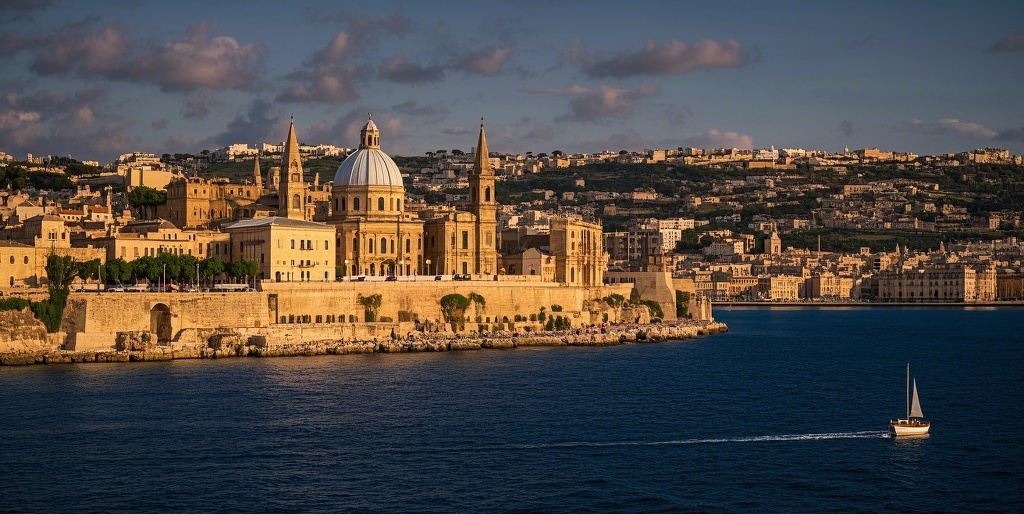Malta Citizenship: The Best Global Strategy for Entrepreneurs #Business #InvestmentMigration
In today’s globalized business environment, flexibility and global mobility are key to success. For high-net-worth entrepreneurs, obtaining Maltese citizenship is not just a change of nationality but a strategic business decision. As an EU member state, Malta offers an excellent business environment and unique advantages for entrepreneurs looking to expand their businesses and provide their families with global access.

🌍 Why Choose Maltese Citizenship?
1. Global Visa-Free Travel
Maltese passport holders can travel visa-free or with visa-on-arrival to over 180 countries and regions, including the United States, Canada, and Australia. This level of mobility is crucial for international entrepreneurs who frequently travel for business.
2. Right to Live and Work in the EU
As a Maltese citizen, you gain the right to live, work, and do business across the EU, including Switzerland, Liechtenstein, Iceland, and Norway. This provides a significant advantage for entrepreneurs looking to expand their presence in the European market.
3. A Stable Business and Financial Environment
Malta is a stable EU jurisdiction with a strong financial and corporate sector, attracting many multinational businesses and investors. Its tax system is business-friendly, making it an attractive hub for international entrepreneurs.
4. Family Inclusion in the Application
Malta’s citizenship program allows applicants to include their spouse/partner, children under 28, and eligible parents and grandparents in the application, ensuring the entire family benefits.
5. Citizenship for Future Generations
Maltese citizenship can be passed down to future generations, even if they are not born in Malta. This ensures long-term benefits for your family.
6. High Quality of Life and Safety
Ranked as one of the safest countries in the world, Malta offers a pleasant climate with over 300 days of sunshine, a world-class healthcare system, and a rich cultural heritage. It’s an ideal place for both living and vacationing.
🛂 How to Obtain Maltese Citizenship?
Malta provides a pathway known as “Naturalisation for Exceptional Services by Direct Investment”, allowing high-net-worth entrepreneurs and investors to obtain Maltese citizenship through a structured, transparent, and relatively fast process.

Requirements
To qualify, applicants must meet the following investment criteria:
- Direct Investment: The required contribution varies depending on the timeframe for citizenship:
- Citizenship in 1 year: €750,000 donation to the Malta National Development Fund (NDF).
- Citizenship in 3 years: €600,000 donation to the NDF.
- Real Estate Investment:
- Purchase property worth at least €700,000, or
- Rent property with an annual lease of at least €16,000 (minimum 5-year commitment).
- Charitable Donation: €10,000 donation to a registered Maltese non-profit organization.
- Residency Requirement: Applicants must reside in Malta for at least 12 months before obtaining citizenship.
Application Process
- Due Diligence Check: The Maltese government conducts a rigorous background check to ensure the legitimacy of applicants and their funds.
- Submission of Application: The applicant must complete the investment, secure property, and submit necessary documentation.
- Approval and Citizenship Grant: Citizenship is typically granted within 12-36 months, depending on the investment amount and application progress.
📊 Why Malta is the Best Choice Right Now?
With immigration policies evolving worldwide, Malta has become one of the most attractive investment migration destinations.
1. Policy Changes in Competing Countries
- United Kingdom: The UK has abolished its non-domiciled tax status, complicating tax planning for high-net-worth individuals.
- Spain: The Spanish government has ended its Golden Visa program, reducing opportunities for foreign investors.
- Portugal & Greece: Both countries have increased their minimum investment requirements, making citizenship more expensive.
In contrast, Malta’s policy remains stable, offering a clear and reliable pathway to citizenship for those seeking long-term security and global market access.
2. Favorable Tax System
Malta operates on a non-global taxation system, meaning foreign income is not taxed unless remitted to Malta. Additionally, businesses can benefit from a corporate tax rate as low as 5%, making Malta an attractive jurisdiction for multinational companies.
🏝️ Living in Malta: A Mediterranean Paradise
Malta is a beautiful island nation in Southern Europe, just 90 km south of Sicily, Italy, often referred to as the “Heart of the Mediterranean”. With its stunning landscapes, rich history, and excellent climate, Malta is an ideal destination for both business and leisure.
1. Pleasant Climate
Malta enjoys a subtropical Mediterranean climate with:
- Average summer temperature: 25°C
- Average winter temperature: 15°C
2. Healthcare & Education
- Healthcare: Ranked among the top 50 healthcare systems globally by the World Health Organization (WHO), Malta offers high-quality public and private medical services.
- Education: Malta has top-tier international schools offering IB, British, and American curricula, ensuring a quality education for entrepreneurs’ children.
❓ Frequently Asked Questions (FAQs)
1. How long does the Maltese citizenship application process take?
The timeline depends on the investment amount, but citizenship is usually granted within 12-36 months.
2. Does Malta allow dual citizenship?
Yes, Malta permits dual citizenship, meaning applicants do not have to renounce their original nationality.
3. Can I obtain Maltese citizenship by investing in a business?
No, Malta’s citizenship program primarily grants citizenship through direct investment, real estate acquisition, and charitable donations.
4. Do I need to reside in Malta permanently?
Applicants must reside in Malta for at least 12 months before obtaining citizenship, but there are no permanent residency requirements afterward.
5. Can Maltese citizenship be passed on to my children?
Yes, Maltese citizenship is hereditary, meaning it can be passed down to future generations, even if they are born outside of Malta.



